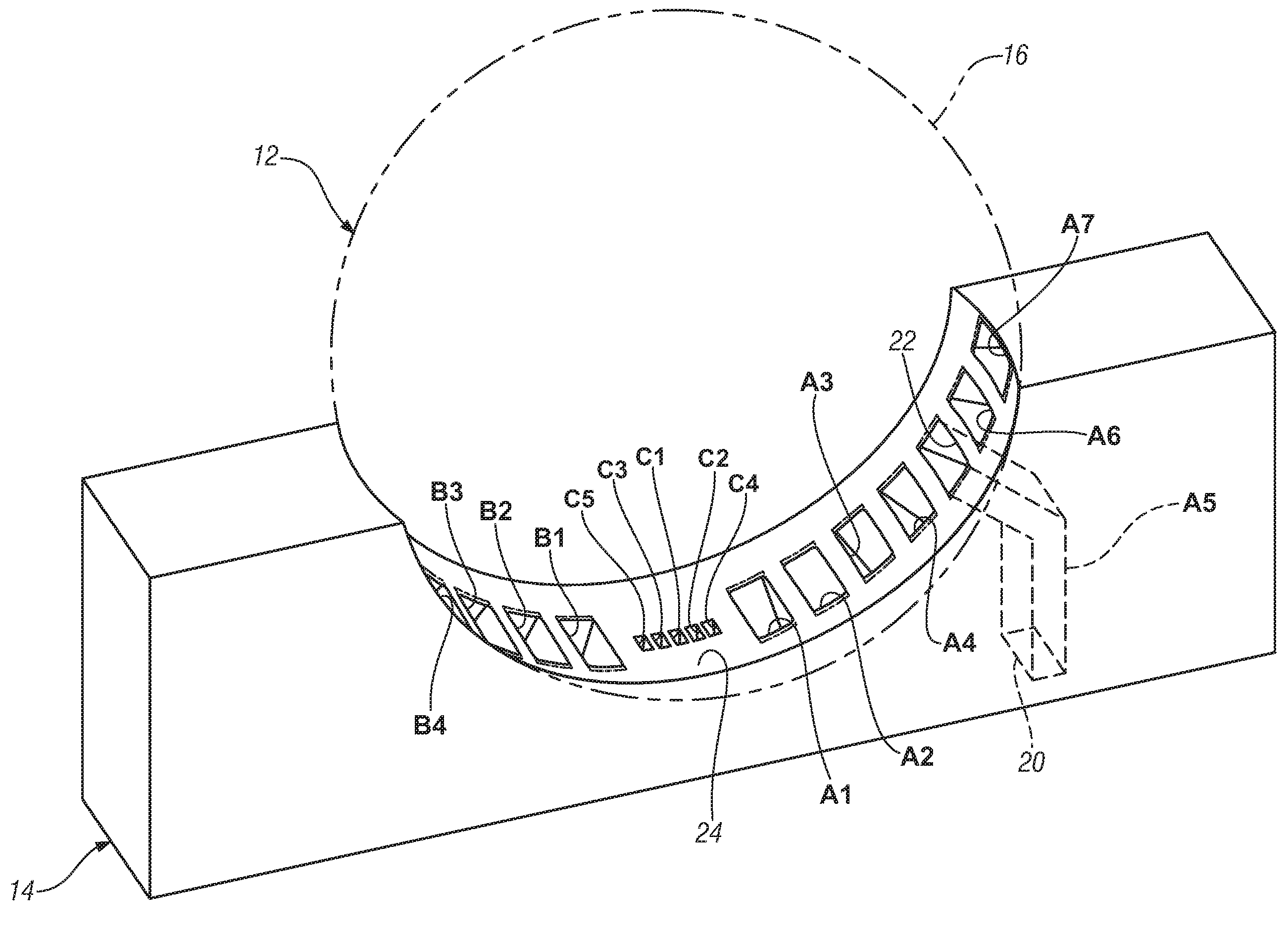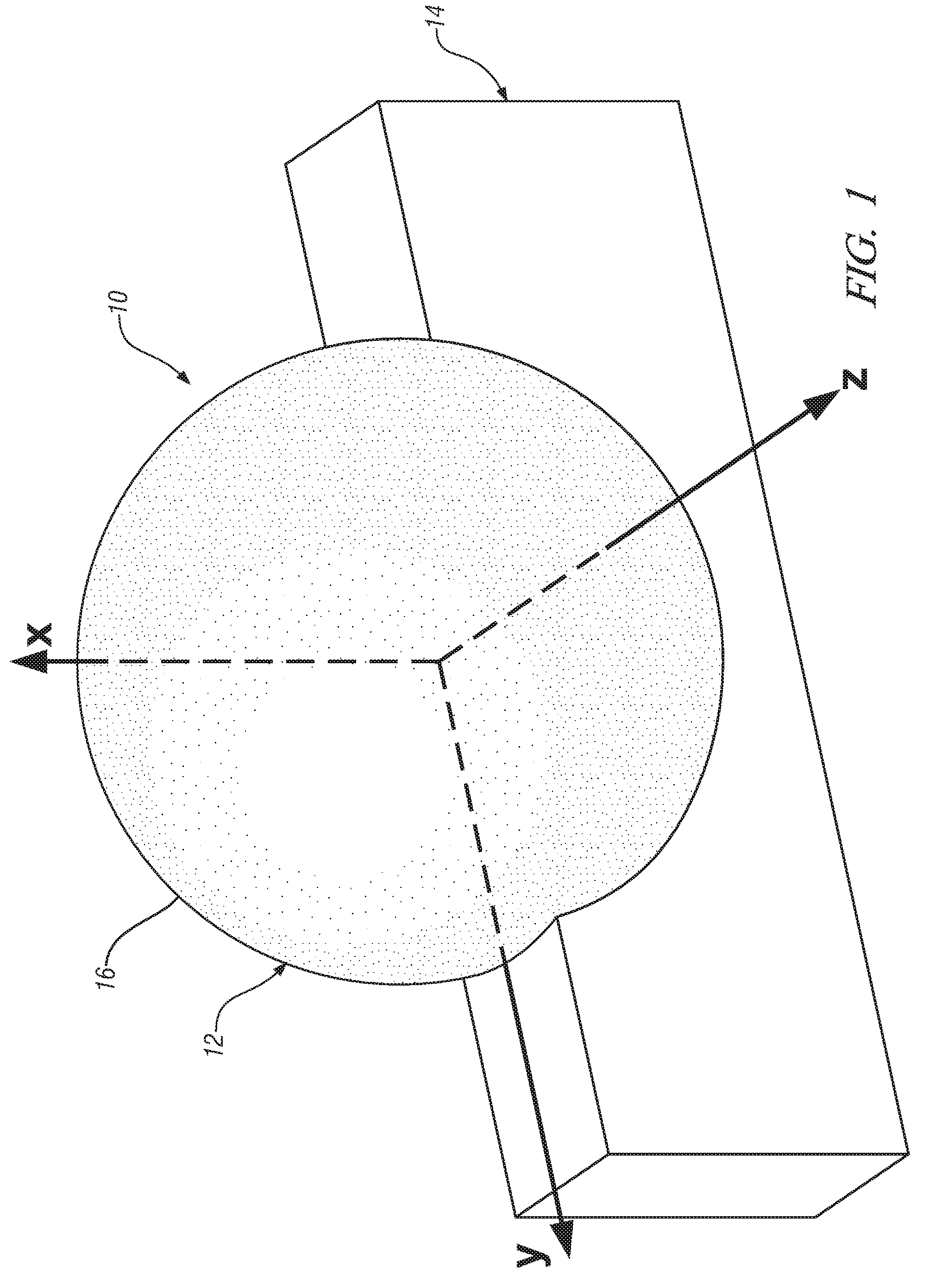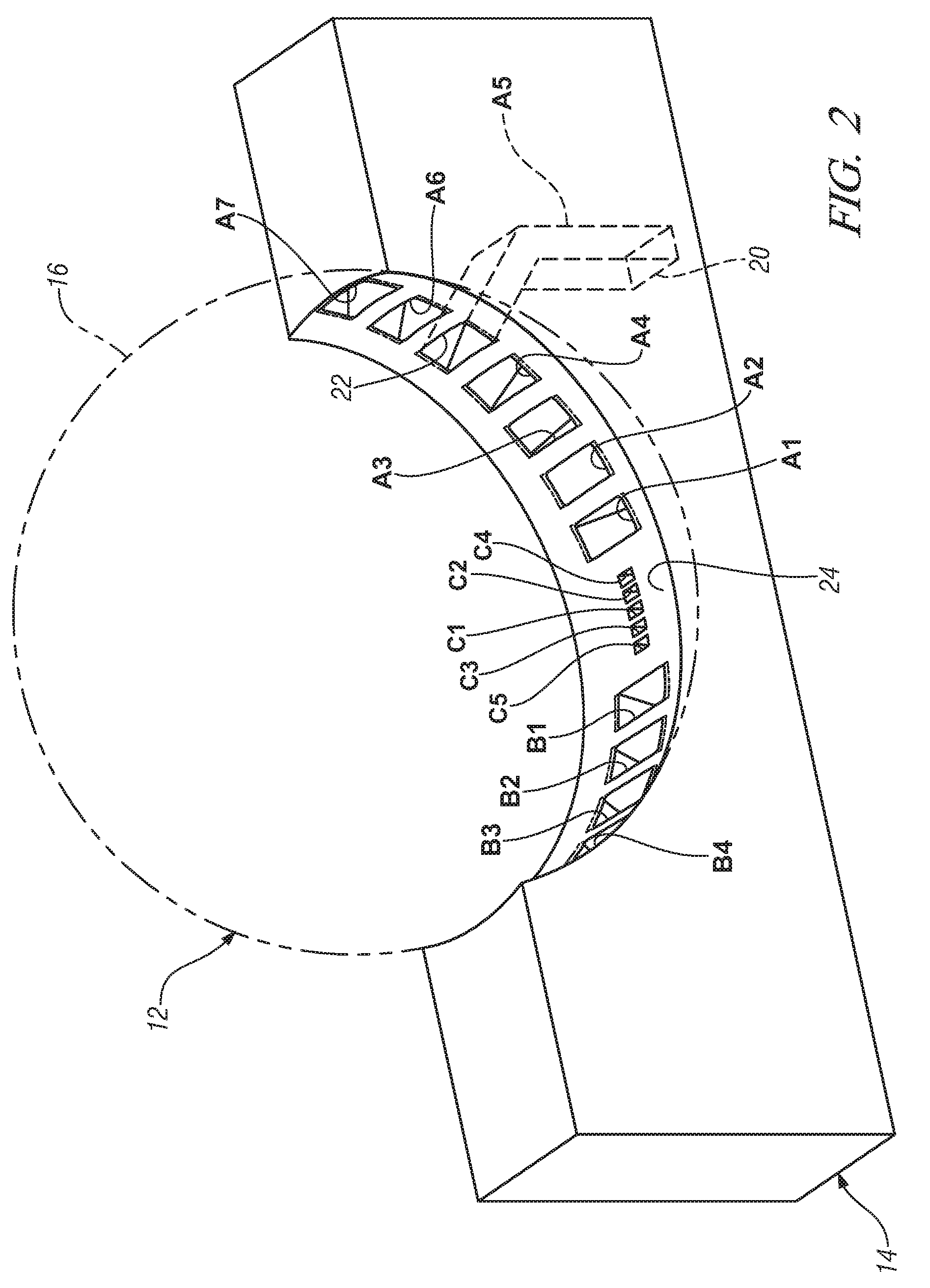Multi-beam antenna with shared dielectric lens
a dielectric lens and antenna technology, applied in the field of antennas, can solve the problems of occupying a significant amount of space on a vehicle by separating antennas, and being relatively expensiv
- Summary
- Abstract
- Description
- Claims
- Application Information
AI Technical Summary
Benefits of technology
Problems solved by technology
Method used
Image
Examples
Embodiment Construction
[0025]A Luneburg lens is a spherical lens formed of a non-homogeneous medium, which is known to have perfect focusing properties. One form of the Luneburg lens has a relative dielectric constant of ∈r=2 at its center, which gradually decreases to ∈r=1 as its outer surface in accordance with the relationship ∈r=2−R2, where R represents the radial distance from the center of a unit radius sphere. This type of lens is known to have one focal point on its spherical surface, with the other focal point at infinity in a direction away from the opposite side of the sphere on a line defined by the surface focal point and the sphere center. Perfect Luneburg lens are difficult to make in practice, and approximate versions having stepped changes in their dielectric constant formed by concentric hemispherical shells of different dielectrics are known in the art; however, these configurations are relatively expensive to manufacture.
[0026]The Applicants have recognized that a solid spherical diele...
PUM
 Login to View More
Login to View More Abstract
Description
Claims
Application Information
 Login to View More
Login to View More - R&D
- Intellectual Property
- Life Sciences
- Materials
- Tech Scout
- Unparalleled Data Quality
- Higher Quality Content
- 60% Fewer Hallucinations
Browse by: Latest US Patents, China's latest patents, Technical Efficacy Thesaurus, Application Domain, Technology Topic, Popular Technical Reports.
© 2025 PatSnap. All rights reserved.Legal|Privacy policy|Modern Slavery Act Transparency Statement|Sitemap|About US| Contact US: help@patsnap.com



